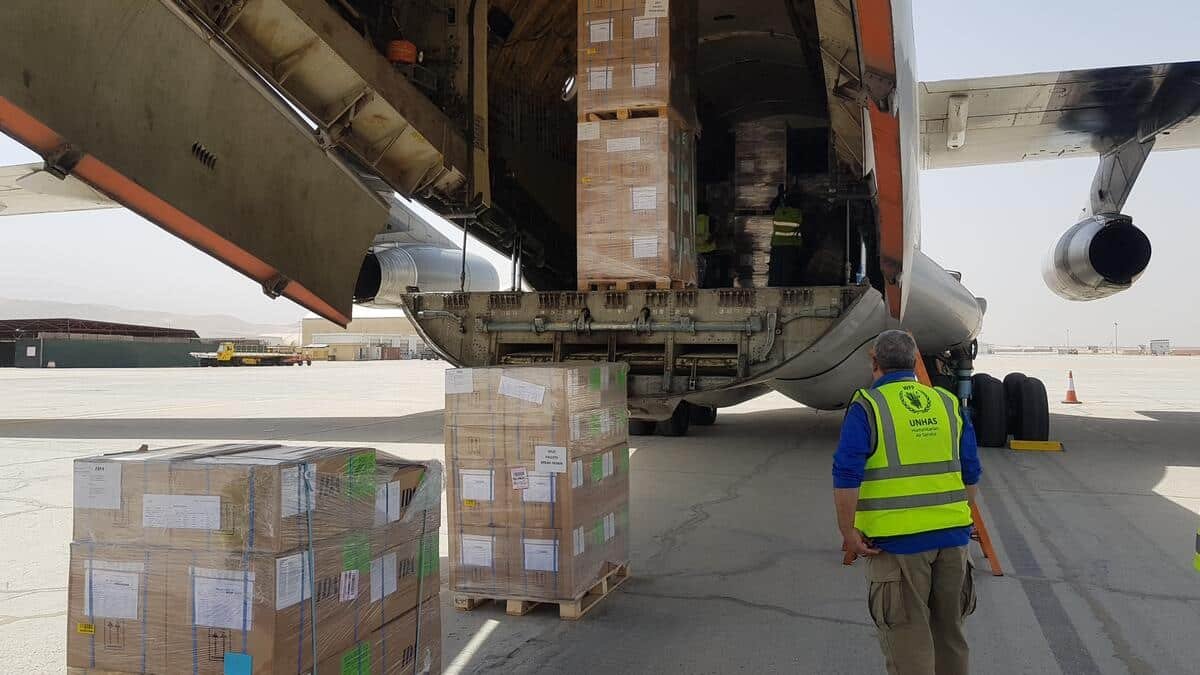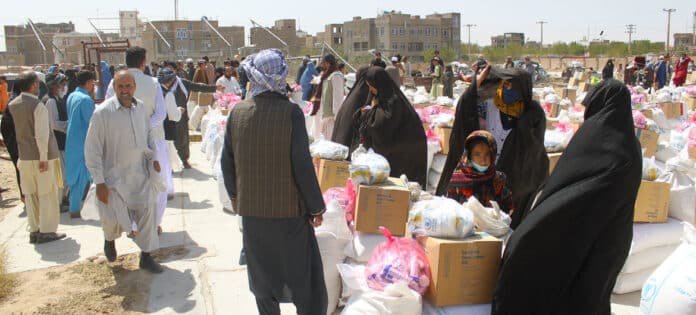GENEVA, SEPTEMBER 14 – The return of humanitarian flights to Kabul since the Taliban takeover of Afghanistan is a turning point in the crisis, the UN World Food Programme (WFP) said on Tuesday. More than 90 per cent of families are struggling to find enough to eat, and with winter fast approaching, aid agencies have been “scrambling to meet massive needs before it is too late”, said WFP spokesperson, Tomson Phiri, who was speaking in Geneva.
The WFP-led Humanitarian Air Service (UNHAS) has completed three cargo flights since the reopening of the air link to Kabul on 12 September, bringing in medical supplies on behalf of the World Health Organization.
 This has enabled “humanitarian responders and much-needed relief items to reach desperate Afghans in multiple locations across the country”. Prior to this UNHAS has connected Islamabad, Pakistan, to the Afghan towns of Mazar-i-Sharif, Kandahar and Herat, since 29 August, Mr. Phiri said.
This has enabled “humanitarian responders and much-needed relief items to reach desperate Afghans in multiple locations across the country”. Prior to this UNHAS has connected Islamabad, Pakistan, to the Afghan towns of Mazar-i-Sharif, Kandahar and Herat, since 29 August, Mr. Phiri said.
Through its six field offices across the country, WFP has been stepping up its operations. Food convoys have been moving across the country and in August alone “more than 400,000 people received assistance”.
However, to “avert a humanitarian catastrophe, much more is needed”, Mr. Phiri said. “WFP needs to reach nine million people a month by November if it is to meet its planned target of 14 million by the end of 2021”.
To keep the air services going, $30 million is needed on top of the $200 million needed to replenish the food pipeline and transport supplies into the country before the winter sets in, the WFP spokesperson said. (@OnuItalia)

